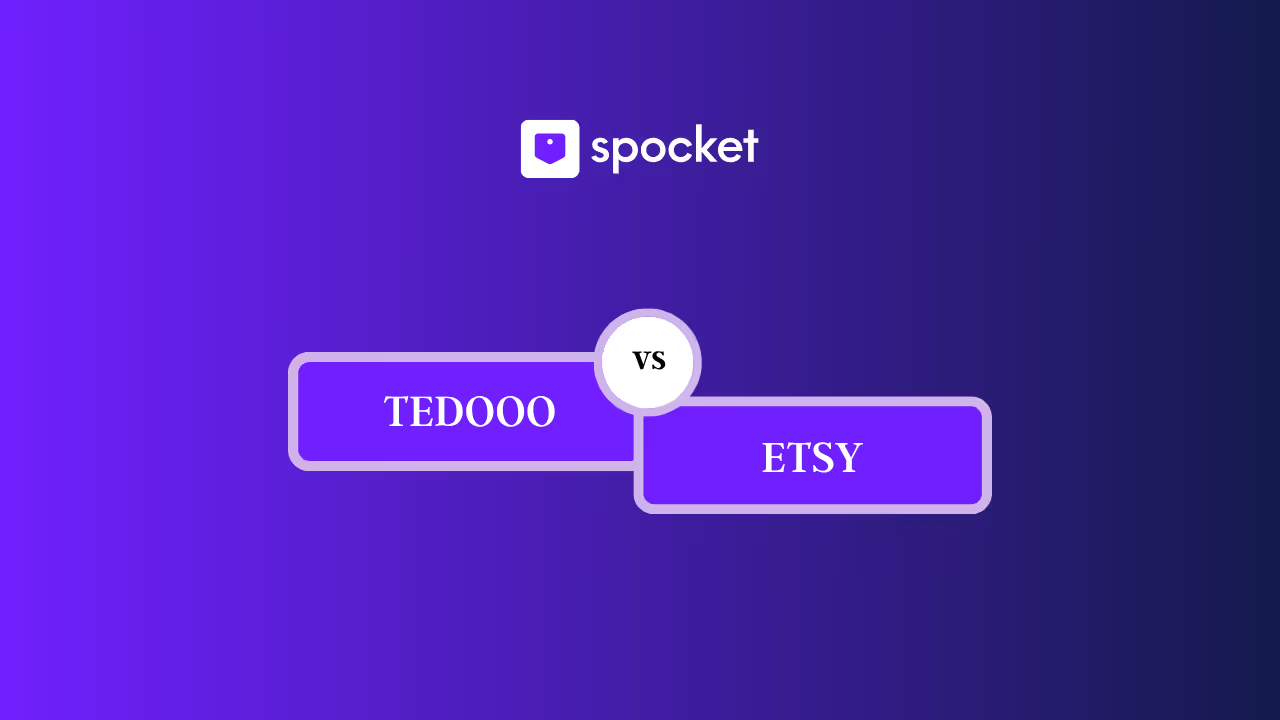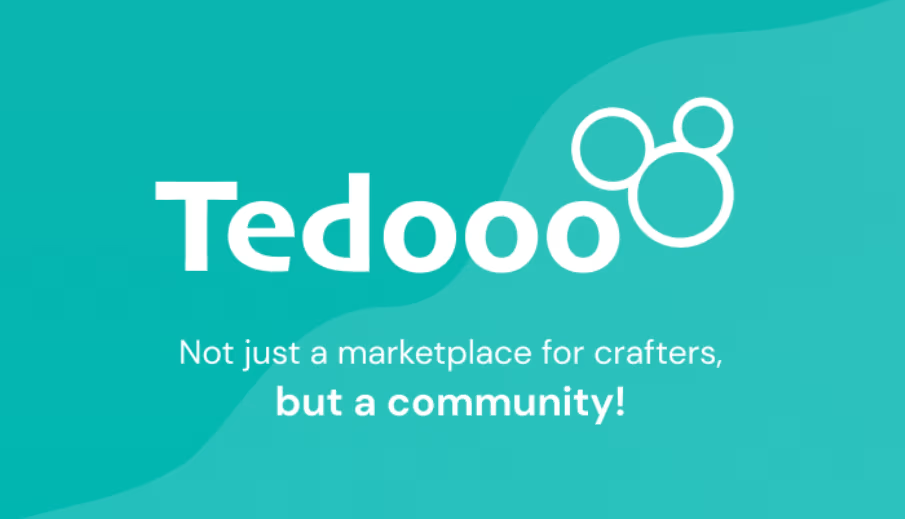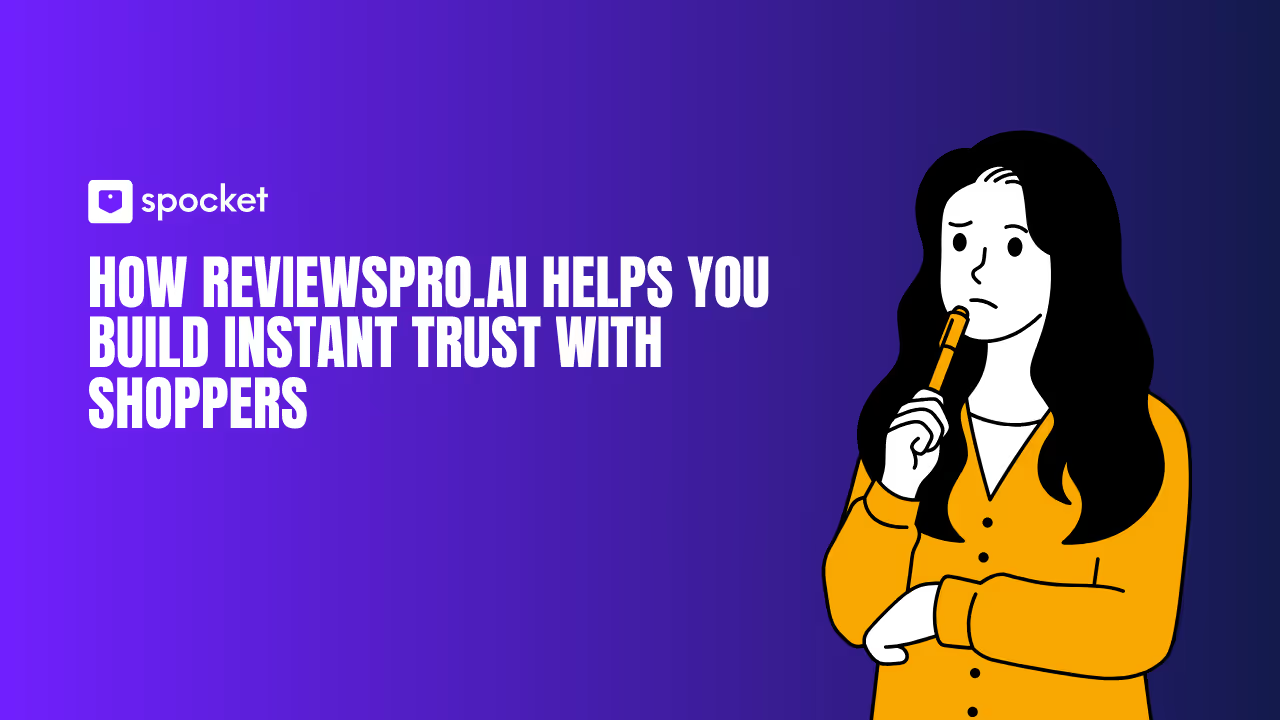Tedooo vs Etsy: Which Platform Is Best?
Discover the pros and cons of Tedooo and Etsy in this in-depth comparison. Find out which platform is better suited for your print-on-demand business in 2025.


If you’re considering entering the print-on-demand (POD) business and trying to decide between Tedooo and Etsy, you’re in the right place. Both platforms offer unique opportunities for creators and entrepreneurs, but they serve different purposes and markets. Understanding the differences between them, their features, fees, and overall user experience can help you make an informed decision about where to launch your print-on-demand business.
In this article, we’ll compare Tedooo and Etsy in-depth, discussing their strengths, weaknesses, and what type of seller would benefit most from each platform. By the end, you’ll have all the information you need to decide which platform is the right fit for your print-on-demand business in 2025.
What is Tedooo?

Tedooo is a relatively new player in the online marketplace world, created with the goal of providing a platform for artisans and makers to sell their unique products. Unlike other marketplaces, Tedooo integrates social commerce, allowing creators to not only sell products but also connect, engage, and collaborate with other creators and buyers. Tedooo is primarily focused on handmade and creative products but offers sellers a unique opportunity to engage with a community that appreciates creativity and craftsmanship.
Key Features of Tedooo
- Zero Listing Fees: One of the most attractive features of Tedooo is its fee-free model. Sellers can list their products without any upfront costs, unlike platforms like Etsy, where sellers pay a listing fee of $0.20 per product.
- Social Commerce Features: Tedooo integrates social elements like product sharing, influencer marketing, and engagement with other creators. This can help sellers increase their visibility and grow their brand.
- Integration with E-commerce Platforms: Tedooo integrates with platforms like Shopify and WooCommerce, allowing sellers to manage their stores across multiple platforms seamlessly.
- Community Support: Tedooo focuses on building a community of artisans and makers. Sellers can connect with other creators, share tips, and get feedback on their work.
Tedooo is still growing, but it provides an appealing option for creators who want to engage with a supportive, creative community while selling their handmade products.
What Is Etsy?

Etsy founded in 2005, is one of the most well-known online marketplaces for handmade, vintage, and craft supply items. Etsy has built a dedicated customer base of people who appreciate unique, one-of-a-kind products, making it a great option for creators and small businesses looking to reach buyers interested in handcrafted items.
Etsy’s popularity and reputation have grown over the years, and it has become the go-to platform for many small businesses and independent artisans. Etsy offers more robust tools for store management and a larger, more established audience compared to newer platforms like Tedooo.
Key Features of Etsy
- Established Global Marketplace: Etsy is one of the largest online marketplaces for handmade and vintage products, offering sellers immediate access to a vast and engaged audience.
- Robust Seller Tools: Etsy provides a range of tools to help sellers manage their businesses, including detailed analytics, marketing features, and customer engagement tools.
- Fees and Costs: Etsy charges a $0.20 listing fee for each product and takes a 6.5% transaction fee on each sale. These fees can add up, especially for smaller sellers.
- Integrated Marketing Options: Etsy allows sellers to promote their products through Etsy Ads, making it easier to increase visibility and attract more buyers.
Etsy has a strong reputation and a wide reach, making it a great platform for creators who want to tap into a massive customer base.
Tedooo vs Etsy: A Detailed Comparison
Now that we have an understanding of what Tedooo and Etsy offer, let’s compare these two platforms based on various important factors like fees, audience reach, customization, support, and more.
1. Audience Reach
- Tedooo: Tedooo is still a growing platform, so its audience reach is much smaller than Etsy's. However, Tedooo offers a more targeted community of artisans and creatives, which can be a huge advantage if you’re selling niche products that require a more engaged audience. The platform’s social-commerce features help promote interaction and visibility within a creative community.
- Etsy: Etsy has an extensive, established audience of buyers specifically looking for handmade, vintage, and unique items. With millions of active buyers around the world, Etsy’s marketplace is far larger than Tedooo’s. This broad audience is a significant advantage if you’re looking to scale quickly, but it also means you’re facing more competition.
2. Fees and Costs
- Tedooo: One of the biggest advantages of Tedooo is that it does not charge listing or transaction fees. This fee-free model is appealing to new sellers and small businesses who want to avoid upfront costs. However, Tedooo does offer a Pro Membership, which provides additional visibility and access to premium features for a monthly fee.
- Etsy: Etsy charges a $0.20 listing fee for each product and takes a 6.5% transaction fee on each sale. Additionally, Etsy charges a payment processing fee, which varies based on the seller’s country. While these fees are standard in the e-commerce world, they can add up, especially if you’re a high-volume seller.
3. Customization and Branding
- Tedooo: Tedooo offers more flexibility when it comes to social engagement but less in terms of store customization. Sellers can focus on creating high-quality products and connecting with other creatives, but the platform doesn't provide as much control over storefront branding as Etsy does.
- Etsy: Etsy excels in branding and customization. Sellers have control over their storefront's layout, including banners, logos, and product descriptions. Etsy also allows for detailed product listings, making it easier for sellers to tell their brand story and connect with their audience.
4. Seller Support
- Tedooo: Tedooo offers responsive customer support and emphasizes building a supportive community. However, being a newer platform, its seller support options are still evolving compared to more established marketplaces.
- Etsy: Etsy provides robust customer support, including detailed help articles and direct support channels for sellers. That being said, many users report that customer service response times can be slow, especially during high-demand periods.
5. Marketing and Visibility
- Tedooo: Tedooo’s marketing features are integrated with its social-commerce model, allowing sellers to promote their products through influencer partnerships and social sharing. However, it does not offer paid advertising features like Etsy does.
- Etsy: Etsy provides various marketing tools, including Etsy Ads, which allow sellers to promote their products directly on the platform. Etsy also integrates with Google Shopping and offers SEO tools to help sellers improve their product visibility.
Tedooo and Etsy Trustworthiness and Reviews
Both Tedooo and Etsy have received mixed reviews on Trustpilot, with each platform having strengths and weaknesses according to users.
Tedooo Trustpilot Rating
Tedooo currently holds a Trustpilot rating of 2.5 out of 5 stars. While some users appreciate its fee-free structure and community-oriented features, others have raised concerns about issues with account suspensions and slow customer service. It’s clear that Tedooo has some growing pains to address, but the platform’s unique value proposition still appeals to a certain group of sellers.
Etsy Trustpilot Rating
Etsy holds a Trustpilot rating of 1.4 out of 5 stars, with over 17,000 reviews. The platform’s negative feedback is often centered around slow customer service, issues with account suspensions, and dissatisfaction with the platform's fees. Despite the complaints, Etsy remains one of the most popular marketplaces for handmade goods, with many sellers still thriving on the platform.
Pros and Cons of Tedooo vs Etsy
When choosing between Tedooo and Etsy, it’s crucial to evaluate the pros and cons of each platform. Both platforms offer unique advantages and challenges, depending on your business model and goals. Let’s break down the key pros and cons of Tedooo and Etsy to help you decide which is the best fit for your handmade or print-on-demand business.
Tedooo: Pros and Cons
Pros
- No Listing or Transaction Fees: One of the standout features of Tedooo is that it charges no listing fees or transaction fees. This can be a huge advantage for new sellers or small businesses, as it allows you to list as many products as you want without worrying about upfront costs or fees cutting into your profits. This fee-free structure allows sellers to keep more of their earnings.
- Community-Oriented Platform: Tedooo places a strong emphasis on community engagement, offering social commerce features that allow you to interact with other creators, share ideas, and learn from your peers. This community-driven approach can be incredibly valuable for sellers who want to connect with like-minded artisans and gain inspiration.
- Integration with E-commerce Platforms: Tedooo integrates seamlessly with popular e-commerce platforms like Shopify and WooCommerce, which is beneficial for sellers who already have an online store on these platforms. This integration allows you to manage your inventory, track sales, and process orders across multiple platforms, streamlining your operations.
- Focus on Creativity: Tedooo is centered around fostering creativity and craftsmanship. If you're looking to build a brand that connects with other creatives, Tedooo’s platform is perfect. Its design encourages collaboration, inspiration sharing, and allows sellers to showcase their craftsmanship in a more engaging way compared to other platforms.
Cons
- Smaller Customer Base: One of the biggest downsides of Tedooo is its smaller customer base compared to Etsy. Since Tedooo is a newer platform, it doesn’t have the same level of traffic or brand recognition that Etsy has built over the years. If you're looking to scale quickly, Tedooo’s smaller market could be a limitation, especially if you're selling products that appeal to a broad audience.
- Limited Product Visibility: While Tedooo offers social-commerce features, its visibility tools and advertising options are not as robust as Etsy's. Etsy offers paid ads and a wide array of promotional tools to help sellers get noticed. Tedooo, on the other hand, doesn’t provide as many opportunities for sellers to increase their product visibility, making it harder to compete in a growing market.
- Fewer Seller Resources and Support: Tedooo’s seller support and educational resources are still developing. While the platform offers basic tools, it lacks the extensive help resources, guides, and seller communities that Etsy has established over the years. Sellers may find themselves needing more guidance, especially if they're new to online selling.
- Still Growing: While Tedooo is a promising platform, it’s still in its growth phase. This means you might face some instability or limited features as the platform continues to evolve. If you want to build a long-term business on a well-established platform, Tedooo’s growing pains could be a deterrent.
Etsy: Pros and Cons
Pros
- Massive Customer Base: Etsy is one of the most popular online marketplaces for handmade, vintage, and unique products. It has millions of active buyers globally, providing sellers with immediate access to a large, dedicated audience. Etsy’s massive customer base gives you the potential to scale your business quickly, with millions of shoppers actively seeking one-of-a-kind, handmade items.
- Strong Brand Recognition: Etsy’s name is synonymous with handmade and artisanal products, which gives it significant credibility among shoppers. The platform has built trust over the years, making it easier for new sellers to gain customer confidence. Etsy’s reputation for quality and authenticity helps sellers stand out in a competitive market.
- Robust Seller Tools and Resources: Etsy provides extensive tools to help sellers manage their stores. These include detailed analytics, SEO optimization tools, and marketing resources such as Etsy Ads to promote your products. Etsy also offers easy integration with other sales channels, including social media and Google Shopping.
- Customization and Branding: Etsy allows you to customize your store with unique branding elements such as banners, logos, and customizable product pages. This gives you more creative control over how your store looks and feels, allowing you to establish a personal connection with customers through your shop’s design and tone.
Cons
- Listing and Transaction Fees: One of Etsy’s main drawbacks is its fee structure. Etsy charges a $0.20 listing fee for each product, along with a 6.5% transaction fee and payment processing fees. While these fees are standard for most e-commerce platforms, they can add up, especially for sellers with high-volume listings.
- High Competition: Etsy is a crowded marketplace with hundreds of thousands of sellers offering similar products. As a result, standing out on Etsy can be challenging, especially in popular categories. Sellers need to work hard on product differentiation, branding, and marketing to compete with other sellers in their niche.
- More Seller Fees and Ads: Etsy offers Etsy Ads, which allow sellers to promote their products directly on the platform. While this can be beneficial for visibility, it comes at an additional cost, and success is not guaranteed. Sellers may also find themselves spending more money on advertising just to keep up with competitors.
- Fulfillment Management: Unlike Amazon Handmade, Etsy does not offer an integrated fulfillment service like FBA (Fulfillment by Amazon). Etsy sellers are responsible for managing their own shipping and inventory. For high-volume sellers, this can be time-consuming and challenging unless they integrate with third-party fulfillment services.
Which Platform Should You Choose?
The decision between Tedooo and Etsy depends on your specific needs, business goals, and the type of products you sell. Here’s a breakdown to help you make your choice:
- Choose Tedooo if you want to avoid listing fees and prefer a social-commerce model with an emphasis on building a creative community. Tedooo is ideal for artists and creators who want to connect with other makers and grow their brand without the pressure of high fees.
- Choose Etsy if you want immediate access to a large, established customer base, strong seller tools, and the ability to customize your shop. Etsy is the go-to platform for handmade products, offering a global reach and well-established reputation.
Conclusion
Both Tedooo and Etsy offer valuable opportunities for sellers of handmade and custom products, but the right platform for you depends on your business needs. Tedooo provides a fee-free environment with a focus on social engagement and creative collaborations, making it ideal for artisans looking to connect with other creators. On the other hand, Etsy offers a larger audience, more customization options, and a well-established marketplace that can help you scale quickly, but with higher fees.
Ultimately, your choice should align with your goals—whether you want to grow your customer base on a global platform or foster a more community-driven experience. If you're looking to scale your print-on-demand business, consider using Spocket to access high-quality products and reliable suppliers for a seamless selling experience. Start your dropshipping journey today with Spocket!
FAQs About Tedooo vs Etsy
Which platform has lower fees, Tedooo or Etsy?
Tedooo has no listing or transaction fees, making it an appealing option for new sellers. In contrast, Etsy charges a $0.20 listing fee and takes a 6.5% transaction fee on each sale, along with additional payment processing fees.
Which platform has a larger customer base, Tedooo or Etsy?
Etsy has a significantly larger customer base compared to Tedooo, as it’s an established marketplace with millions of active buyers globally. Tedooo, being newer, has a smaller but growing community focused on handmade and creative products.
Can I use both Tedooo and Etsy for my business?
Yes, you can use both platforms for your business. Many sellers choose to list their products on Etsy for its broader reach and established audience, while using Tedooo for a more fee-free, community-oriented experience. Managing both accounts could help you maximize visibility.
Does Etsy offer fulfillment services like Amazon's FBA?
No, Etsy does not provide an integrated fulfillment service like Amazon FBA. Sellers are responsible for managing their own inventory, shipping, and fulfillment. Tedooo also doesn't offer this service but integrates with other e-commerce platforms like Shopify for smoother order management.
Launch your dropshipping business now!
Start free trialRelated blogs
.avif)
Customer Journey Maps: How to Get Started for Beginners (2026 Guide)
Learn what a customer journey map is and what phases it entails. Our guide for beginners helps businesses improve user experiences.

How Do I Research Market Trends for My Store?
Learn how to research market trends for your dropshipping store using powerful trend tools, data insights, and Spocket strategies to stay ahead of the competition.

How ReviewsPro.ai Helps You Build Instant Trust with Shoppers
Discover how ReviewsPro.ai, the AI reviews tool for e-commerce, helps you boost conversions, gain social proof, and build instant trust with shoppers.


































